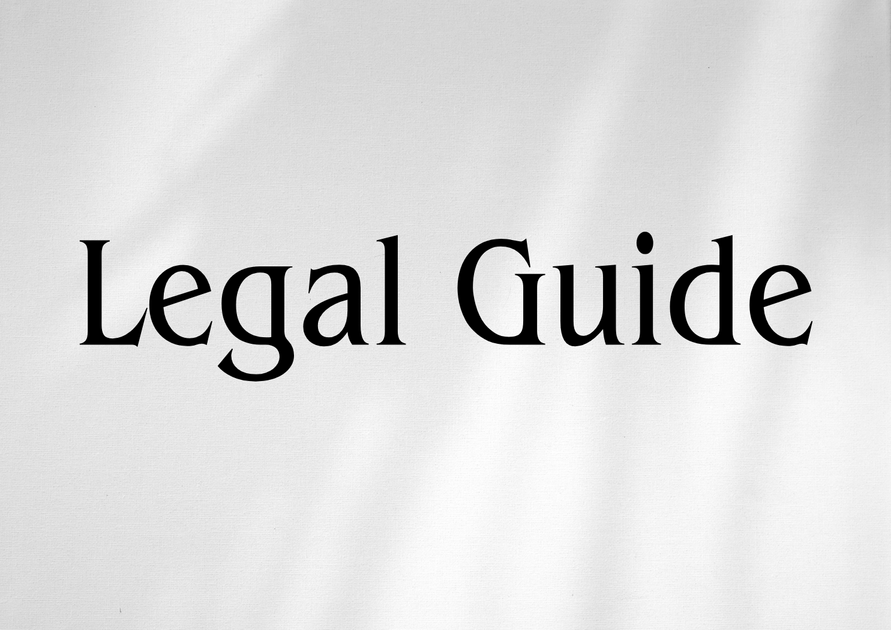Introduction
In today’s rapidly evolving commercial landscape, arbitration has become a preferred mechanism for dispute resolution in the United Arab Emirates (UAE), offering businesses an efficient, confidential alternative to traditional court proceedings. With the UAE fortifying its position as a global business hub, the legal landscape governing arbitration continues to evolve. The latest legislative updates—anchored in the Federal Decree-Law No. 6 of 2018 on Arbitration and its subsequent amendments, particularly the 2023–2025 updates—reflect the UAE’s commitment to aligning with international best practices and the UNCITRAL Model Law. Understanding the intricacies of arbitration procedure and the appointment of arbitrators is not merely a legal formality; it is paramount for corporations, executives, human resources leaders, and in-house counsel seeking to safeguard interests and ensure legal compliance in cross-border transactions.
This article serves as a comprehensive, consultancy-grade guide to arbitration procedure and the appointment of arbitrators under UAE law. It explores recent legal reforms, analyzes compliance risks, provides actionable strategies for organizations, and reviews the evolving standards for enforceability of arbitral awards. Whether you are negotiating a new commercial contract, navigating a complex dispute, or refining internal compliance frameworks amid new regulatory expectations, these insights are tailored for the modern UAE business environment.
Table of Contents
- Legal Framework Governing Arbitration in the UAE
- Key Legal Principles of Arbitration Under UAE Law
- Detailed Arbitration Procedure in the UAE
- Breakdown: Appointment and Challenge of Arbitrators
- Practical Application and Case Studies
- Comparative Analysis: Old vs. New Arbitration Law
- Risks of Non-Compliance and Compliance Strategies
- Future Prospects and Best Practices
- Conclusion
Legal Framework Governing Arbitration in the UAE
1.1 Official Sources and Scope
The governing legislation for arbitration in the UAE is primarily Federal Decree-Law No. 6 of 2018 on Arbitration, as amended by various Cabinet Resolutions—most notably Cabinet Resolution No. 57 of 2018 and updates through 2023–2025. Key regulations and interpretations can also be found in the Federal Legal Gazette, UAE Ministry of Justice circulars, and the UAE Government Portal.
1.2 Institutional vs. Ad Hoc Arbitration
Arbitration in the UAE can be classified as either institutional—administered by bodies such as the Dubai International Arbitration Centre (DIAC) or the Abu Dhabi Commercial Conciliation and Arbitration Centre (ADCCAC)—or ad hoc, where parties craft their own procedures within the legislative framework. The choice of institution may significantly affect procedural rules, costs, and enforcement.
Key Legal Principles of Arbitration Under UAE Law
2.1 Party Autonomy
The core of UAE arbitration law is party autonomy: parties are largely free to agree upon the rules that will govern their arbitration, subject to mandatory legal provisions and public order. This principle underpins the credibility and flexibility of the UAE’s arbitration regime.
2.2 Neutrality and Impartiality
Federal Decree-Law No. 6 of 2018, Article 10 et seq., requires that all arbitrators be neutral and independent. Specific procedures are in place for disclosures, challenges, and removal to prevent conflicts of interest and ensure the integrity of proceedings.
2.3 Enforceability of Agreements and Awards
UAE law enshrines the enforceability of valid arbitration agreements (Article 4, Decree-Law No. 6 of 2018), and awards made in compliance with the law are enforceable as court judgments, subject to limited grounds for annulment.
Detailed Arbitration Procedure in the UAE
3.1 Initiation of Arbitration
Initiating arbitration requires a written arbitration agreement—typically a clause within a contract. Under Article 7 of Decree-Law No. 6 of 2018, the agreement must reference disputes arising out of or relating to the contract, and be signed by authorized representatives.
If a dispute arises, the initiating party serves a notice of arbitration, specifying the nature of the dispute, relief sought, and reference to the arbitration agreement. Where institutional rules apply, prescribed forms and timetables must be observed.
3.2 Composition and Appointment of Arbitrators
Statutory Requirements
The arbitral tribunal may comprise a sole arbitrator or an odd-numbered panel (usually three), as agreed by the parties or determined by the relevant arbitral institution. Articles 9-14 of the Arbitration Law outline:
- Eligibility: Arbitrators must be fully legally competent, of good standing, and may not be bankrupt or have criminal convictions (Article 10).
- Appointment Mechanism: Parties are free to agree on a procedure. Failing agreement, the default mechanism is triggered: each appoints one arbitrator, who jointly appoint a chairperson; or, for a sole arbitrator, appointed by Dubai Courts or an institution.
- Timeframes: If appointments are not made within 15 days (or the period agreed), relevant courts or institutions intervene.
Suggested Visual: Appointment Process Flow Diagram
A visual diagram showing the step-by-step arbitrator selection process enhances clarity for readers, from party agreement to institutional/court appointment.
3.3 Conduct of Arbitral Proceedings
Once appointed, the tribunal directs proceedings, which may include preliminary meetings, evidence production, written submissions, and oral hearings—all subject to party agreement and institutional rules. The principles of confidentiality, due process, and equality of arms are rigorously observed (Articles 26–29).
3.4 Issuance and Enforcement of the Arbitral Award
The tribunal must deliberate and issue a reasoned, written award within the timeframes stipulated by law or agreement (Articles 41–44). The award is notified to parties and, subject to completion of formalities, is enforceable via the competent Court of Appeal under expedited procedures (Article 52).
Breakdown: Appointment and Challenge of Arbitrators
4.1 Appointment: Procedures and Best Practices
Arbitrators play a pivotal role—decision-makers whose expertise and impartiality critically affect the outcome of disputes. The selection process should be strategic:
- Expertise and Industry Experience: Consideration should be given to arbitrators’ subject-matter understanding—be it construction, energy, or commercial disputes—to ensure nuanced adjudication.
- Neutrality and Diversity: Appointing arbitrators from neutral jurisdictions or with diverse backgrounds can foster fairness and credibility.
- Institutional Support: Utilizing reputable institutions like DIAC ensures transparency, systematic procedures, and experienced arbitrator pools.
4.2 Challenge and Replacement of Arbitrators
If legitimate doubts about impartiality or independence arise, any party can challenge an arbitrator within fifteen days of becoming aware of such circumstances (Article 15). Grounds include:
- Personal or financial ties to any party
- Statements or actions suggesting bias
- Non-compliance with disclosure requirements
If the arbitrator is successfully challenged, or unable to act, a substitute is appointed using the original method or, if not specified, by the competent court or institution.
4.3 Notable Legal Precedents
Recent UAE Court of Cassation decisions, as disseminated via the Federal Legal Gazette, confirm the strict scrutiny of arbitrator impartiality and detailed requirements for disclosure, emphasizing the judiciary’s commitment to upholding international standards.
4.4 Compliance Checklist Table
| Checklist Item | Required by Law? | Practical Guidance |
|---|---|---|
| Written arbitration agreement | Yes | Contract clauses must be explicit, signed, and reference relevant rules |
| Qualified arbitrator(s) | Yes | Verify credentials, legal standing, and absence of conflicts |
| Impartiality disclosures | Yes | Ensure comprehensive written disclosure of interests |
| Challenge process | Yes | Document reasons and adhere to statutory timelines |
Practical Application and Case Studies
5.1 Hypothetical Case Study: Construction Dispute in Dubai
Scenario: Two multinational companies are locked in a construction dispute over alleged delays in Dubai. The arbitration agreement designates DIAC rules. Upon initiation, each party appoints a UAE-qualified arbitrator, who in turn select a chair from a neutral international background. During proceedings, one arbitrator’s close commercial relationship with a party’s affiliate emerges, triggering a challenge. The challenge is upheld, and a replacement is appointed under institutional rules. The process is concluded in under twelve months, and the final award is swiftly recognized and enforced by the Dubai Court of Appeal.
5.2 Benefits of Robust Arbitration Clauses
Ensuring robust, detailed arbitration clauses in all contracts mitigates risks of jurisdictional disputes and procedural delays. Clearly articulated clauses—specifying number and method of arbitrator appointment, applicable law, seat, and language—are critical for enforceability.
Comparative Analysis: Old vs. New Arbitration Law
6.1 Table: Key Differences between Pre-2018 and Current Law
| Topic | Pre-2018 Law (Civil Procedures Law) | Federal Decree-Law No. 6 of 2018 (as amended) |
|---|---|---|
| Arbitration Agreement Form | Limited to rigid forms, multiple signatures | Liberalized formal requirements, electronic acceptance valid |
| Appointment of Arbitrators | Limited party autonomy; significant court intervention | Greater party autonomy; detailed default mechanisms |
| Challenge of Arbitrators | Not well-defined | Specific procedures, timelines, and grounds |
| Interim Measures | Not recognized expressly | Tribunal empowered to order interim measures |
| Arbitral Award Enforcement | Complex, lengthy court ratification | Simplified, expedited process through Court of Appeal |
6.2 Impact of 2023-2025 Updates
Recent amendments refine provisions regarding the enforceability of awards, recognition of foreign awards (in line with the New York Convention), and standards for digital evidence—reflecting UAE’s drive for a pro-arbitration and business-friendly environment. Ongoing reforms, expected by 2025, seek to enhance online and remote arbitration, reinforce party autonomy, and improve arbitrator accountability.
Risks of Non-Compliance and Compliance Strategies
7.1 Legal Risks
- Inoperable Arbitration Clauses: Vague or poorly drafted clauses can invalidate the arbitration agreement, subjecting parties to unpredictable court litigation.
- Biased or Unqualified Arbitrators: Appointing conflicted or inexperienced arbitrators exposes parties to award annulment or enforcement challenges.
- Procedural Irregularities: Non-conformity with statutory timelines or due process can result in significant delays and legal costs.
7.2 Compliance Strategies for Organizations
- Engage legal counsel during contract drafting to develop tailored, compliant arbitration clauses referencing the most relevant institution and rules.
- Establish an internal arbitration policy and regularly train contract managers on legal and procedural requirements.
- Vet proposed arbitrators for eligibility and independence before appointment.
- Maintain thorough records of all communications and procedural steps during arbitration, enabling rapid response to challenges or enforcement issues.
7.3 Suggested Table: Compliance Readiness Checklist
| Action Item | Responsibility | Frequency |
|---|---|---|
| Review arbitration clauses | Legal team | Upon contract formation/renewal |
| Update list of eligible arbitrators | Compliance officer | Annually |
| Train staff on arbitration procedure | HR/Legal | Biannual |
| Monitor legal updates | External counsel | Quarterly |
Future Prospects and Best Practices
8.1 Key Trends for 2025 and Beyond
With the UAE’s continued economic growth and increasing penetration of foreign investment, arbitration will remain integral to commercial dispute resolution. Anticipated 2025 legal reforms are expected to bring:
- Enhanced digitization, including e-filing and remote hearings
- Stricter enforcement of award compliance
- Broader recognition of international arbitral awards
- Expanded training and accreditation for arbitrators
8.2 Best Practice Recommendations
- Draft future-proof clauses: Regularly review and update clauses to reflect the latest laws and institutional guidelines.
- Select experienced, diverse arbitrators: Prioritize industry expertise and impartiality.
- Establish compliance protocols: Integrate arbitration compliance into wider risk management and contract governance frameworks.
- Stay informed: Monitor updates from the UAE Ministry of Justice and leading institutions to anticipate regulatory changes.
Conclusion
The UAE has emerged as a regional leader in arbitration, offering a legal framework that aligns with global standards and supports business confidence. The latest advancements under Federal Decree-Law No. 6 of 2018 and 2025 updates continue to prioritize party autonomy, enforceability, neutrality, and efficiency. For organizations operating in or through the UAE, a deep understanding of arbitration procedures and careful appointment of arbitrators are vital to mitigating legal risks and maximizing dispute resolution outcomes. Regular review of policies, leveraging institutional expertise, and proactive compliance are indispensable strategies for thriving in the UAE’s dynamic legal environment. By adopting these best practices, businesses can confidently navigate dispute resolution and safeguard both legal and commercial interests in the years ahead.



